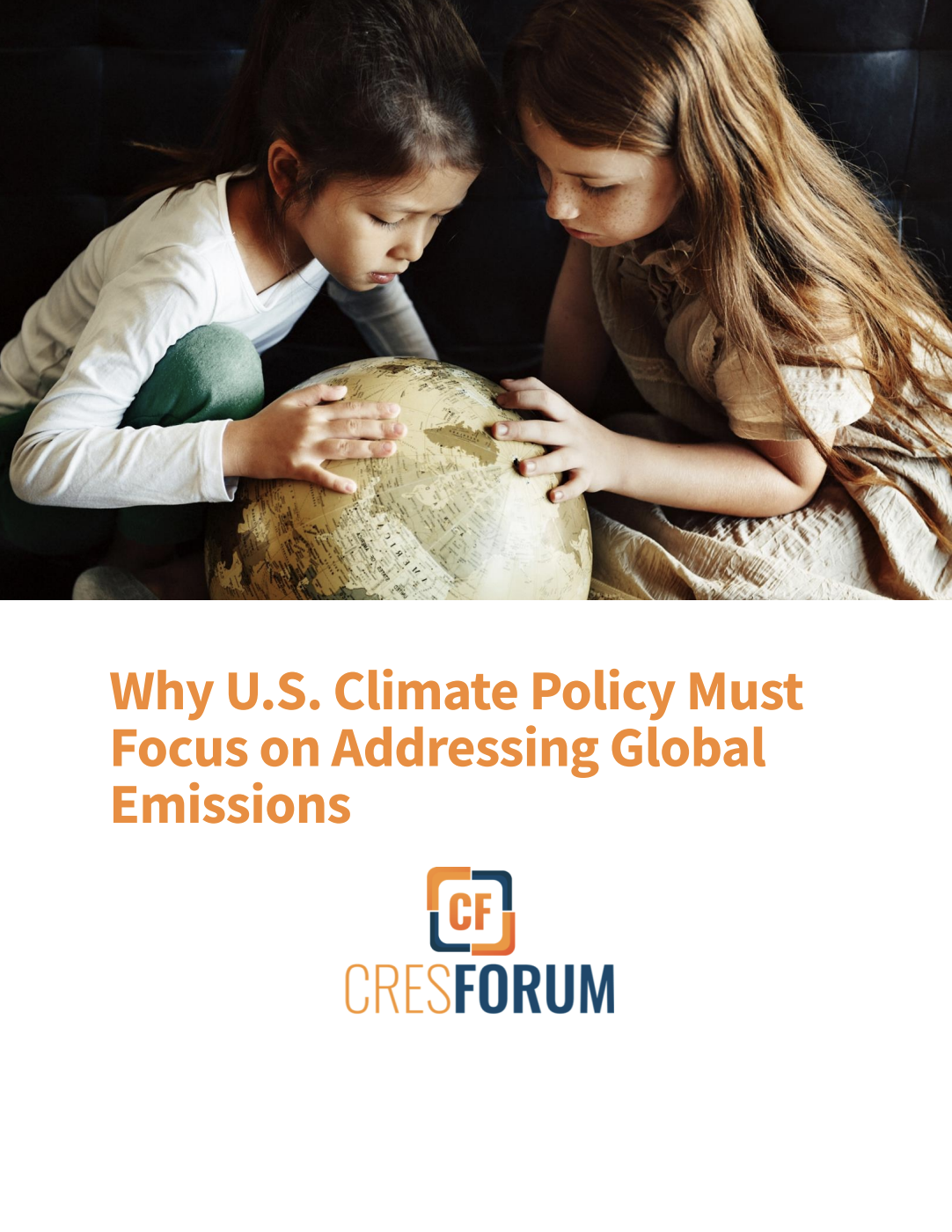Federal Investment
Federal investment in research, development, and deployment can bring new, low-carbon technologies to the market in greater numbers and support America’s continued leadership in global emissions reductions.
To celebrate the release of CRES Forum’s newest white paper, “Growing an Industry for Clean Hydrogen,” our team hosted a briefing and networking event, “Will Hydrogen Have its Moment?,” to convene industry leaders, congressional staff and key stakeholders to discuss the potential of hydrogen to reduce global emissions, as well as the challenges and opportunities […]

Introduction Hydrogen has been dubbed the “Swiss army knife” of clean energy, given its potential to become a tool to cut emissions in key sectors, as well as to assert U.S. global energy leadership and increase our nation’s competitive edge. Given its unique attributes, it has the potential to greatly reduce emissions in hard-to-decarbonize industrial […]
Introduction Section 45X of the Internal Revenue Code (IRC) provides an advanced manufacturing production credit to domestic manufacturers of applicable clean energy components. Currently, the United States relies heavily on foreign manufacturers for these components and resources, including adversarial countries like Russia and China. Establishing a robust domestic supply chain requires reducing U.S. dependence on […]
Introduction Hydrogen has been dubbed the “Swiss army knife” of clean energy, given its potential to become a tool to cut emissions in key sectors, as well as to assert U.S. global energy leadership and increase our nation’s competitive edge. According to the U.S. Department of Energy (DOE), switching to low-emissions hydrogen in hard-to-abate sectors […]
Investment tax credits are designed to reduce the cost of technologies and practices and incentivize private investment, resulting in adoption. Section 48 of the tax code provides an investment tax credit specifically for property in the energy sector including qualified small wind, waste energy recovery, qualified biogas and microgrid controllers. Section 48 had previously allowed […]
We’re excited to launch a new blog here at CRES Forum, Right on Energy. We’ll regularly feature responsible policy solutions to timely energy and climate issues that are top of mind for us. Whether it’s novel policy proposals, recently enacted legislation, or the United States’ role in international policymaking, CRES Forum will highlight conservative policy […]
To kick off August recess, Citizens for Responsible Energy Solutions (CRES) Forum took part in the Conservative Climate Foundation’s (CCF) 2nd Annual Communicators Retreat in Charleston, South Carolina. In attendance were over 70 U.S. House and Senate communicators, industry leaders, and partners uniquely positioned to champion an energy approach that lowers global carbon emissions, strengthens […]

This briefing paper is part of CRES Forum’s Understanding the Facts Series, providing substantive background information on why and how conservatives should lead on climate change policy. The issues and approaches are rooted in CRES Forum’s Conservative Climate Policy Directives. These directives were developed to help policymakers and the public better understand how policies can […]
American innovation is undoubtedly the key to overcoming some of our nation’s most difficult challenges. Our innovation engine is made up of the government, providing guidance and support; the research community and academia, seeking new discoveries and building the knowledge base; the private sector, bringing those discoveries to the market in new and useful ways. […]
Energy storage is considered the “holy grail” of energy because it allows for stockpiling unused power for when consumers need it the most. Currently, the U.S. electricity grid only has enough cumulative storage capacity to provide power for around 20 minutes – or a mere 10 seconds if only battery storage is considered. The development […]